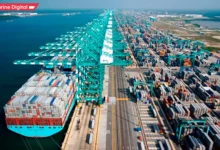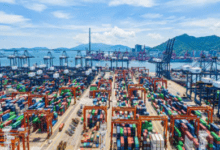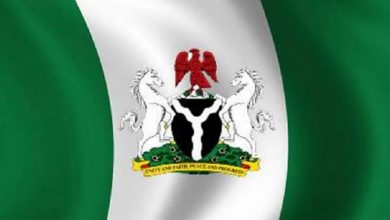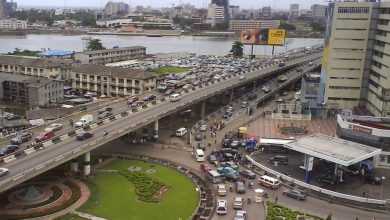
10 Factors affecting the size of Labour Force in Nigeria
Factors affecting the size of Labour Force in Nigeria – Nigeria, as at 2022 was estimated to have a labour force of about 66.8 million people. According to Statista, in the year before (2021), it was greatly estimated that around 64.5 million people were actively engaged in the economy of the country. The labour force of the country is largely made up of those of the working age as well as those who are duly qualified to take up employment opportunities.Information Guide Nigeria
The size of labour in the country has been greatly affected by a lot of factors ranging from immigration to death, and the worst of it all was the global pandemic (COVID-19) which made some persons switch careers or move to another country in search of greener pastures. Today, most people still abandon their jobs and go all out in search of other jobs where they think they will bet better pay or recognition and this is telling on the labour force of the nation.
👉 Relocate to Canada Today!
Live, Study and Work in Canada. No Payment is Required! Hurry Now click here to Apply >> Immigrate to CanadaRead Also: 10 Factors Affecting Money Supply in Nigeria
Definition of the Labour Force
The term “labor force” describes the whole population that is either employed or actively looking for work. As the potential for economic growth and development, it is an essential part of a nation’s economy. The number of people who are employed or actively looking for employment is known as the labor force, and it is a crucial indicator of the economic and social progress of a nation.Factors affecting the size of Labour Force
Overview of Nigeria’s Labor Force Size
With a population of over 200 million, Nigeria has one of the biggest labor forces in Africa. With a sizable section of the population being of working age, the labor force has been gradually expanding in recent years. Nevertheless, despite its size, Nigeria’s labor force suffers a variety of difficulties, such as underemployment, low labor productivity, and high unemployment.
Organizations in Nigeria that are in Charge of Regulating the Size of the Labor Force
The major body in charge of governing Nigeria’s labor force composition is the Federal Ministry of Labour and Employment. It is in charge of carrying out labor policy, upholding labor laws, and policing hiring procedures throughout the nation. The National Bureau of Statistics (NBS) is also in charge of gathering and disseminating information on the size of the labor force and its many subsets. 19 Best Tecno Mobile Phones and their Prices in Nigeria
Read Also: 10 Factors That Influence The Emergence Of Nationalism In Nigeria
Factors Affecting the size of Labour Force in Nigeria
-
Demographic Changes:
Nigeria’s population is expanding quickly, and a sizable percentage of it is of working age. However, because there haven’t been as many job openings as there have been workers, underemployment and unemployment are at high levels.20 Best Sofas and Couches in Nigeria and their Prices
-
Education and Skill Development:
A significant element influencing the size of the labor force in Nigeria is the standard of education and the accessibility of skill development programs. The labor force’s potential is constrained by a lack of access to excellent education and training, which lowers its productivity and competitiveness.
-
Economic Development:
The size of the labor force in Nigeria is influenced by the level of economic development since it determines the number of employment options. The number of available jobs is constrained by a lack of economic growth, which also results in a decline in the labor force.NYSC Portal
👉 Relocate to Canada Today!
Live, Study and Work in Canada. No Payment is Required! Hurry Now click here to Apply >> Immigrate to CanadaRead Also: 10 Factors Affecting Trade Union In Nigeria
-
Infrastructure Development:
Poor infrastructure, such as insufficient electricity, communication, and transportation, restricts the growth of the labor force by restricting the availability of new employment opportunities and lowering labor force competitiveness.
-
Health and Sanitation:
By lowering the labor force’s productivity and competitiveness, poor health and sanitation conditions have an impact on the size of the labor force. The potential of the labor force is constrained by high rates of sickness, hunger, and lack of access to healthcare, which results in a smaller labor force.JAMB Portal
-
Political Stability:
Political stability has a significant impact on Nigeria’s labor force composition. Political turbulence and instability produce uncertainty, which inhibits economic expansion and the development of new jobs, which in turn shrinks the labor force.
-
Regulation and Enforcement of Labor Laws:
One important element influencing the size of the labor force in Nigeria is how well labor laws are regulated and enforced. Poor labor law enforcement results in exploitation, low pay, and unfavorable working conditions, which lowers the potential and size of the labor force.
-
Agricultural Development:
The size of the labor force in Nigeria is significantly influenced by agricultural development. Agricultural productivity has an impact on the amount of employment possibilities, and the growth of the agricultural industry may result in a rise in the labor force.JAMB RESULT
-
Technology:
By altering the demand for labor and the nature of work, technological breakthroughs and the adoption of new technologies have an impact on the size of the labor force. Although technological advancements might boost productivity and efficiency, they can also result in job losses and a decline in the labor force’s size.
Read Also: 10 Factors Affecting Inter-group Relations In Nigeria
Measures to be taken to address the factors affecting the size of the labour force in Nigeria
-
Programs for education and skill development:
Increasing educational and training possibilities for the workforce will assist boost the availability of skilled employees and raise overall productivity.
-
Encouraging Women to Work in the Workforce:
Increasing the number of women in the labor force can improve the economy.
-
Supporting Enterprise:
Supporting entrepreneurship can increase employment and provide new jobs.
-
Infrastructure Development:
By enhancing infrastructure, such as transportation and communication networks, people may have an easier time finding employment and contributing to society.200 romantic love message for her
-
Health Services:
Ensuring that workers have access to high-quality healthcare services will help them stay healthy and be more productive.
-
Labor Market Flexibility:
Encouraging firms to recruit more employees and increase the size of the labor force is possible through enhancing labor market flexibility, such as by removing limits on hiring and firing.
-
Policies Supporting Labor Migration:
By luring employees from abroad, policies supporting labor migration can assist boost the size of the labor force.
-
Encouraging Investment:
Promoting investment in the nation has the potential to increase employment opportunities and the size of the workforce. 105 good morning messages
-
Social Protection Programs:
Offering social protection plans, like unemployment insurance, may support employees through tough times and keep them actively engaged in the workforce.
-
Labor Laws and Regulations:
Increasing the favorability of labor rules and regulations for both employees and businesses can promote labor force expansion.
Read Also: 10 Factors Affecting Industrialization in Nigeria
The Effect of Labor Force Size on the Nigerian Economy
The work force’s size has a big influence on the economy. Economic growth can result from having a larger labor force since there will be more people available to manufacture goods and services. However, a smaller workforce may lead to slower economic expansion and higher unemployment.
Conclusion:
In summary, having considered the topics above it is therefore important that all the key players in the labour market ensure that a comfortable working environment is made available for workers to thrive in so that the labour force of the country can be sustained.
Also, resolving the issues impacting the size of the labor force in Nigeria necessitates a multifaceted strategy that takes care of the root issues and promotes the expansion of the labor force thereby leading to a lasting impact on the Nation’s economy.
Check JAMB RESULT
Check and Confirm: How much is Dollar to Naira








